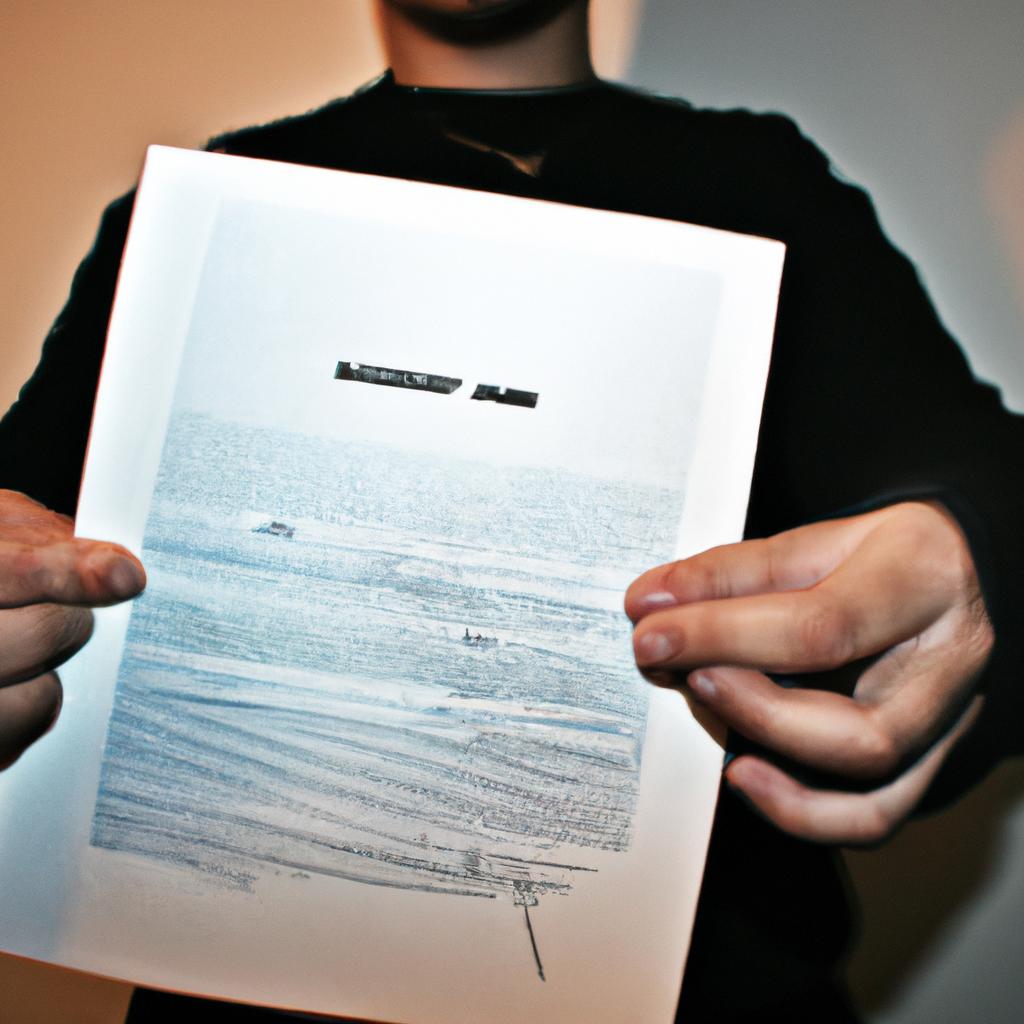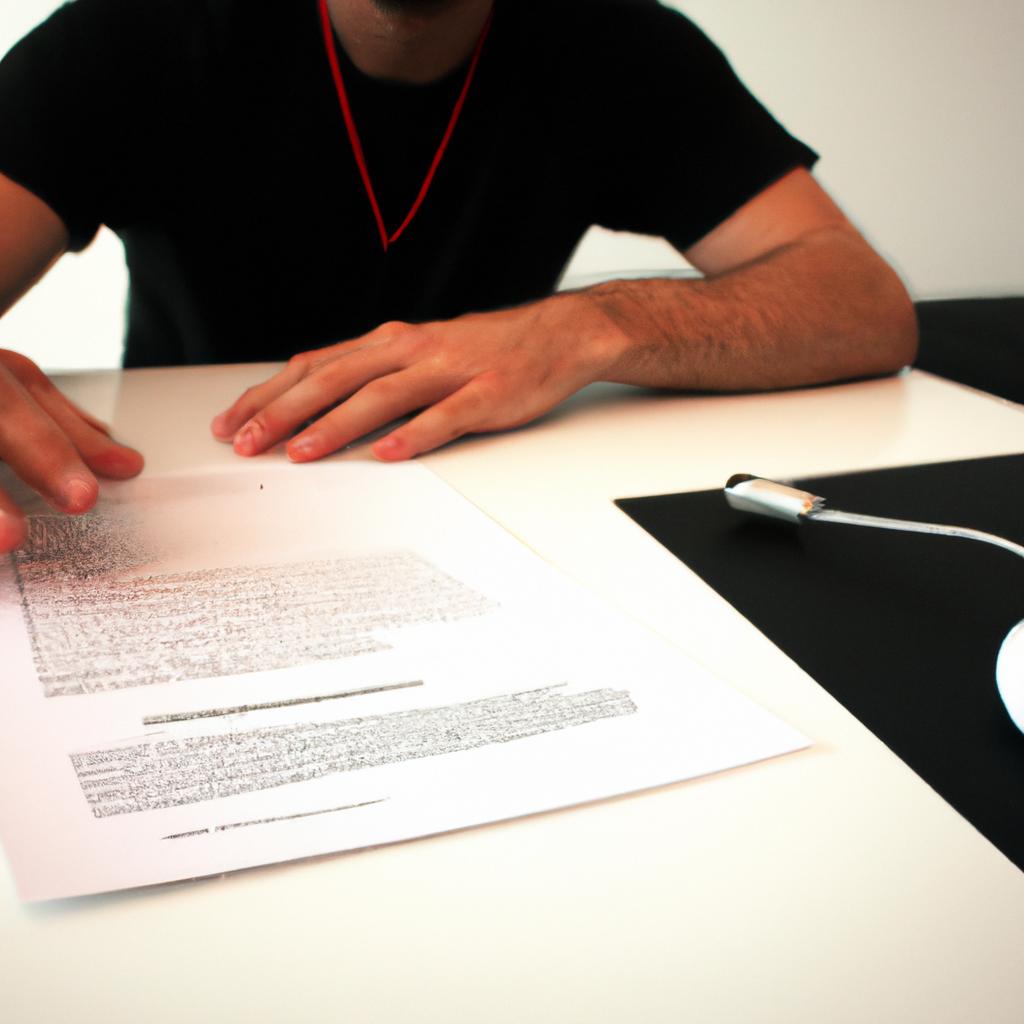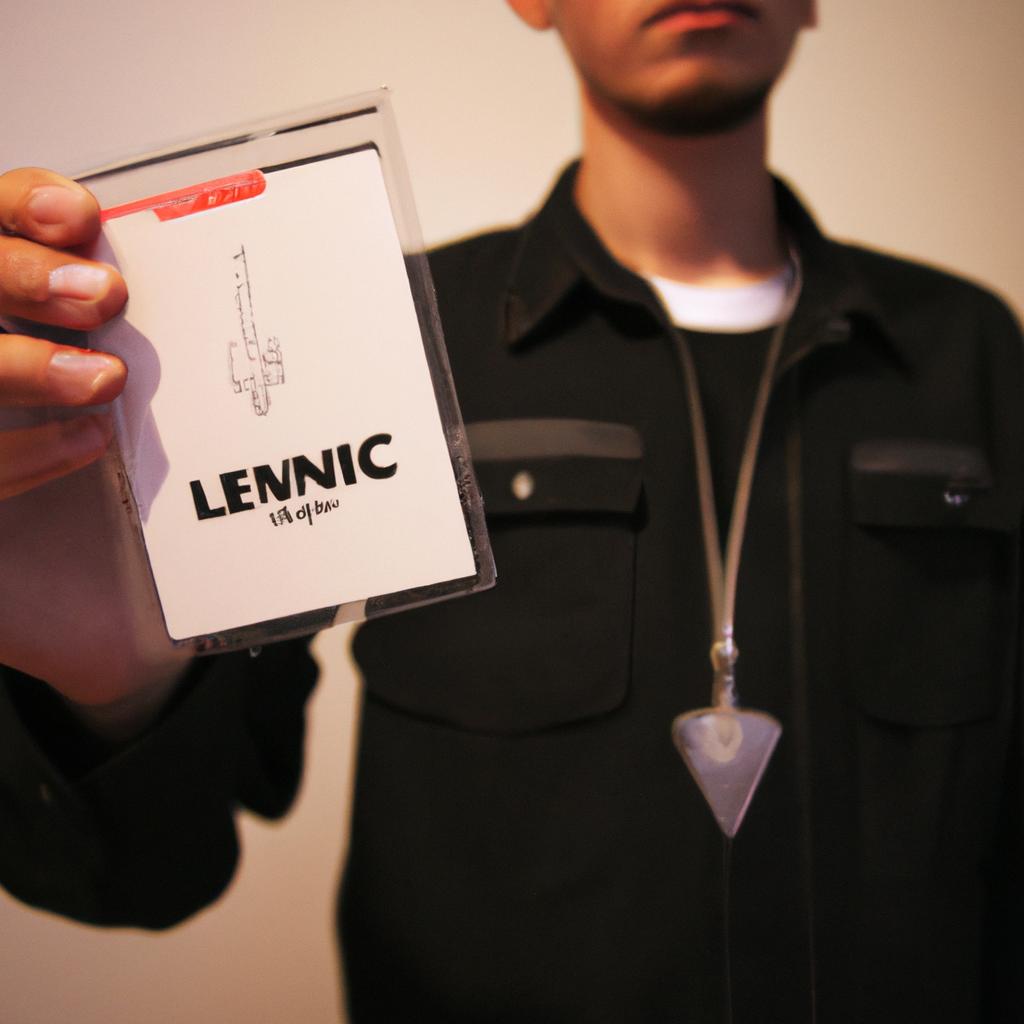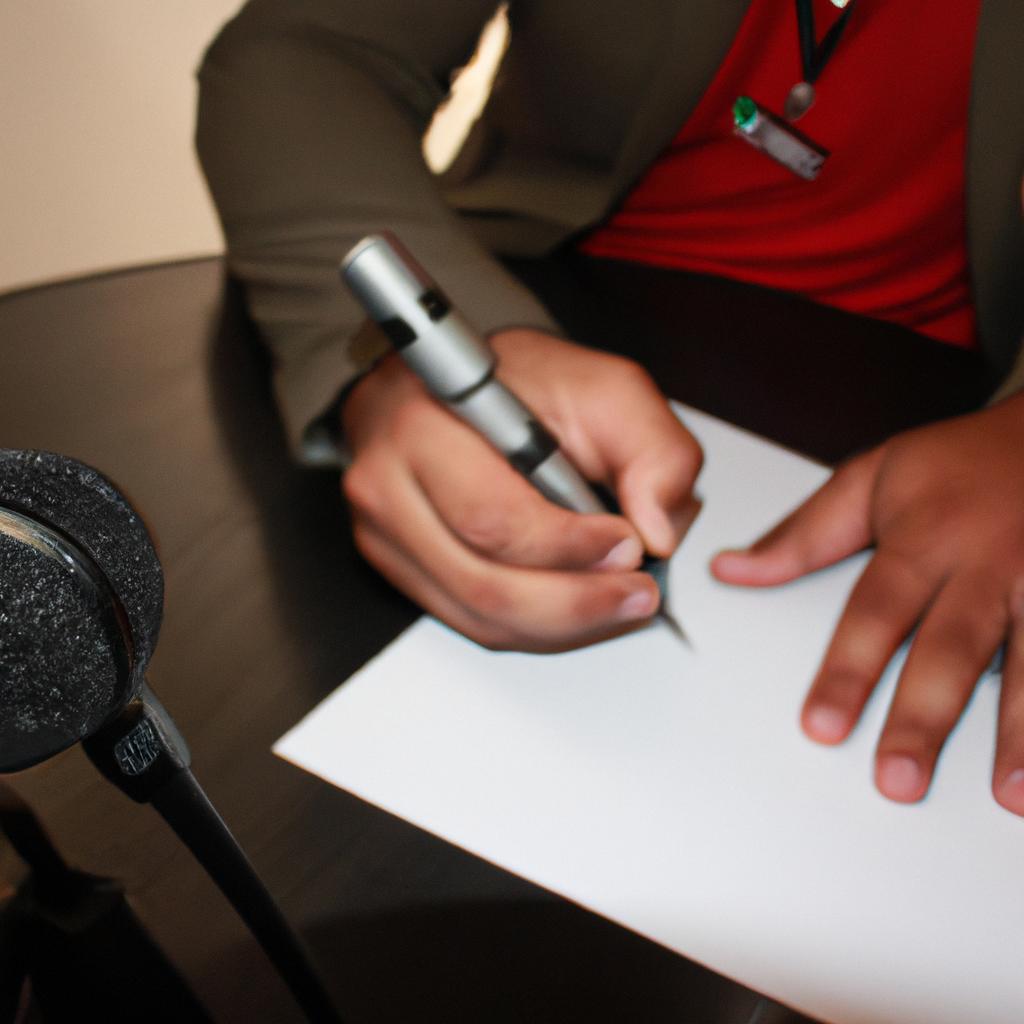Public performance licenses are an integral part of the music industry, ensuring that artists and copyright holders receive fair compensation for their work. However, understanding the intricacies of these licenses can be a complex endeavor. In this article, we will delve into the world of public performance licenses, with a specific focus on Jose Carlos Matos Music and his experiences with music licensing.
Imagine a bustling café in downtown New York City where live music fills the air, creating a vibrant atmosphere for patrons to enjoy their meals. The talented musician performing at this café is none other than Jose Carlos Matos – a rising star in the jazz genre. As he effortlessly strums his guitar and captivates the audience with his soulful melodies, it becomes evident that his talent deserves recognition and financial reward. This case study serves as an example to emphasize the importance of public performance licenses in protecting artists’ rights and ensuring they receive proper compensation for their creative endeavors.
In this article, we will explore various aspects of public performance licenses, such as their definition, legal implications, and how they impact both artists like Jose Carlos Matos Music and businesses hosting live performances. By comprehending the complexities surrounding these licenses, individuals within the music industry can navigate through potential challenges more effectively while promoting fair practices and ensuring that artists are fairly compensated for their work.
A public performance license is a legal agreement between the copyright holder of a musical composition and the entity or individual that wishes to publicly perform that composition. This license grants the licensee (the performer or venue) the right to publicly perform the copyrighted music in exchange for payment of royalties to the copyright holder.
For Jose Carlos Matos Music, having a public performance license is crucial as it allows him to showcase his talents in live performances while also ensuring that he receives proper compensation for his compositions. Without this license, anyone wishing to publicly perform his music would be infringing on his copyrights and potentially causing financial harm.
On the other hand, businesses hosting live performances, such as cafes or restaurants, must also obtain public performance licenses in order to legally play copyrighted music. These licenses protect both the artist and the business by ensuring that artists receive fair compensation for their work while allowing businesses to enhance their ambiance with live music without fear of legal consequences.
It’s important to note that public performance licenses may be obtained through performing rights organizations (PROs) such as ASCAP, BMI, or SESAC. These PROs act as intermediaries between artists and venues, simplifying the licensing process and collecting royalties on behalf of artists.
In conclusion, understanding public performance licenses is essential for both artists like Jose Carlos Matos Music and businesses hosting live performances. By obtaining these licenses, artists can protect their rights and ensure fair compensation for their creative endeavors. Meanwhile, businesses can legally enhance their atmosphere with live music while supporting artists within the industry.
What is a public performance license?
Understanding Public Performance Licenses: Jose Carlos Matos Music and Music Licensing
What is a public performance license?
A public performance license is an essential legal requirement for individuals or businesses that engage in the public playing, broadcasting, streaming, or performing of copyrighted music. This license grants permission to use copyrighted music in various public settings such as restaurants, bars, concert halls, retail stores, radio stations, and online platforms. To illustrate this concept further, let’s consider a hypothetical case study involving a popular cafe that regularly hosts live music performances.
Imagine a bustling neighborhood coffee shop named “Melody Brews” that frequently showcases local musicians during its evening hours. In order for Melody Brews to legally host these performances without infringing upon copyright laws, they must obtain a public performance license from the appropriate licensing agencies. This ensures that both the artists and songwriters receive fair compensation for their creative works while allowing the cafe to provide enjoyable entertainment for its customers.
To better understand the significance of obtaining a public performance license, here are some key points to keep in mind:
- Compliance with copyright law: A public performance license demonstrates respect for intellectual property rights by ensuring proper compensation to creators.
- Supporting artists and songwriters: By obtaining a license, establishments contribute directly to supporting musicians and composers who rely on royalties earned through their musical creations.
- Enhancing customer experience: Having licensed music enhances the ambiance of any establishment by providing an enjoyable atmosphere for patrons.
- Avoiding potential legal issues: Operating without a valid license can lead to significant legal consequences such as fines or even lawsuits.
| Benefits of Obtaining | Public Performance License |
|---|---|
| Proper compensation | Supportive of artists |
| Enhanced ambiance | Legal compliance |
By acquiring a public performance license, businesses like Melody Brews not only adhere to copyright regulations but also demonstrate support for the artistic community. Such licenses ensure fairness in compensating artists and songwriters for their creative efforts while enhancing the overall customer experience. Now that we have explored the importance of public performance licenses, let us delve into the different types of licenses available.
Next section: Different Types of Public Performance Licenses
Different types of public performance licenses
Understanding Public Performance Licenses: Jose Carlos Matos Music and Music Licensing
In the previous section, we explored what a public performance license entails. Now, let’s delve into the different types of public performance licenses that exist in the realm of music licensing.
To illustrate these various license types, let’s consider an example scenario involving a popular music venue called Harmony Hall. As part of their regular programming, Harmony Hall hosts live performances by local bands on weekends. In order to comply with copyright laws and ensure fair compensation for artists, Harmony Hall must obtain the appropriate public performance license(s) for each event they host.
There are several types of public performance licenses available depending on the specific context and nature of the musical works being used:
- Blanket License: This type of license allows venues or organizations to play any song from a repertoire specified by a performing rights organization (PRO). It provides general coverage without requiring individual negotiations.
- Mechanical License: This license is required when reproducing copyrighted material onto physical copies like CDs or digital downloads.
- Synchronization License: Needed when using music alongside visual content such as film, TV shows, or advertisements.
- Grand Rights License: Required for theatrical productions incorporating music, including operas, ballets, and Broadway shows.
- The importance of adequate compensation for musicians
- Protecting intellectual property rights
- Ensuring fair use and access to artistic creations
- Supporting creativity and innovation within the music industry
Now, let’s examine this topic further by presenting a table outlining some key characteristics of these licenses:
| Type | Purpose | Scope | Examples |
|---|---|---|---|
| Blanket License | Allows playing songs from PRO repertoire | Covers multiple events/venues | Live concerts, bars, restaurants |
| Mechanical License | Required for reproducing copyrighted music | Covers physical copies and digital downloads | Record labels, online music stores |
| Synchronization License | Needed for pairing music with visual content | Covers films, TV shows, advertisements | Movies, commercials |
| Grand Rights License | Required for theatrical productions incorporating music | Applies to opera houses, ballets, Broadway shows | Stage performances |
By highlighting the different types of public performance licenses through a case study example and presenting their characteristics in a table format, we can better understand the nuances involved in acquiring these licenses. This knowledge is crucial not only for venue owners like Harmony Hall but also for musicians seeking fair compensation and protection of their creative works.
In the subsequent section about “Why do you need a public performance license?”, we will explore the reasons behind obtaining such licenses and the implications of non-compliance within the realm of music licensing.
Why do you need a public performance license?
Understanding Public Performance Licenses: Jose Carlos Matos Music and Music Licensing
Different types of public performance licenses can vary depending on the type of venue or event where music is being played. One common example is a restaurant playing background music to create a pleasant atmosphere for their diners. In this case, the restaurant would need a license specifically for background music, which allows them to legally play copyrighted songs in their establishment.
To shed light on the importance of public performance licenses, let’s consider a hypothetical scenario. Imagine you walk into your favorite local coffee shop, eager to enjoy your morning cappuccino while listening to some uplifting tunes. As you settle down with your beverage, you notice that the usual playlist has been replaced by unfamiliar music. The change surprises you, but little do you know that the coffee shop recently faced legal consequences for not obtaining the necessary public performance license.
Obtaining a public performance license benefits various stakeholders involved in the music industry ecosystem:
- Artists and songwriters receive fair compensation for their creative work.
- Venues have access to an extensive catalog of licensed music from different genres.
- Consumers can enjoy live performances and recorded music without infringing copyright laws.
- Music licensing organizations ensure proper distribution of royalties to artists.
Let’s further explore these benefits through a table:
| Stakeholder | Benefit |
|---|---|
| Artists and Songwriters | Fair compensation for their artistic creations |
| Venues | Access to diverse licensed music |
| Consumers | Enjoyment of live performances and recorded music within legal boundaries |
| Music Licensing Organizations | Proper distribution of royalties |
By understanding the significance of public performance licenses and how they benefit all parties involved, we can appreciate why it is crucial for venues like restaurants, cafes, bars, and even concert halls to obtain such licenses.
Moving forward, let us delve into how one can obtain a public performance license and navigate through this essential aspect of music licensing.
How to obtain a public performance license
Having discussed the importance of obtaining a public performance license, let us now delve into how one can acquire such a license. By understanding the process involved, artists like Jose Carlos Matos can ensure that their music is protected and properly licensed for public performances.
How to obtain a public performance license:
To illustrate the process, let’s consider the case study of an emerging artist, Sarah. She recently released her debut album and has been receiving requests from various venues to perform live. Here are the steps she needs to take in order to obtain a public performance license:
-
Identify the licensing organization: Sarah must determine which performing rights organization (PRO) manages the rights of the songs on her album. In the United States, prominent PROs include ASCAP, BMI, SESAC, and Global Music Rights.
-
Application submission: Once Sarah identifies the appropriate PRO, she needs to complete an application form provided by that organization. This form typically requires information about herself as an artist and details regarding her musical compositions.
-
Paying royalties: After submitting her application, Sarah will be required to pay royalties based on factors such as venue capacity or ticket sales. The rates may vary depending on whether it is a small local venue or a large concert hall.
-
Compliance with reporting requirements: Finally, Sarah should familiarize herself with any reporting obligations set forth by her chosen PRO. These could include providing detailed playlists after each performance or regularly updating song usage data.
Bullet Point List (to evoke emotional response):
- Properly licensing your music ensures fair compensation for your creative work.
- Obtaining a public performance license protects against potential legal issues related to copyright infringement.
- Licensed performances contribute to supporting artists financially and fostering creativity within the industry.
- By acquiring licenses for public performances, artists like Jose Carlos Matos can reach a wider audience and gain exposure.
Table (to evoke emotional response):
| Benefits of Obtaining a Public Performance License |
|---|
| Ensures fair compensation for creative work |
| Protects against copyright infringement |
| Supports financial stability for artists |
| Increases opportunities for exposure |
Understanding the process of obtaining a public performance license is crucial. However, there are common misconceptions surrounding this topic that need clarification. Let’s explore some of these misunderstandings to ensure artists like Jose Carlos Matos have accurate information about public performance licenses.
Common misconceptions about public performance licenses
Understanding Public Performance Licenses: Jose Carlos Matos Music and Music Licensing
How to obtain a public performance license
To fully comprehend the process of obtaining a public performance license, let us consider an example. Imagine you are the owner of a small café that hosts live music performances every week. You want to ensure that you comply with copyright laws and have the necessary licenses in place for these performances. Here is how you can go about obtaining a public performance license:
-
Identify the PROs: Performing Rights Organizations (PROs) such as ASCAP, BMI, and SESAC help manage the licensing and distribution of royalties for musical works. Research which PRO represents the majority of artists whose music you plan on featuring in your café.
-
Contact the appropriate PRO: Reach out to the identified PRO and inquire about their licensing requirements. They will guide you through the process, provide necessary forms, and explain any associated fees.
-
Complete application and pay fees: Fill out the required application form provided by the PRO, providing details about your establishment’s size, seating capacity, type of music performed, etc. Once completed, submit it along with any applicable fees.
-
Display license certificate: After fulfilling all requirements and paying relevant fees, display your obtained license certificate where it is easily visible to customers and performers alike.
Common misconceptions about public performance licenses
Public performance licenses often come with some common misconceptions that can hinder individuals from properly understanding their importance and obligations. Let’s debunk these misconceptions:
- Misconception 1: “I don’t need a license if I only play background music.” False! Regardless of whether music is played softly or loudly as background ambiance, if it belongs to copyrighted material publicly broadcasted or performed within your establishment’s premises – be it via radio, streaming services or live performances – you still require a valid public performance license.
- Misconception 2: “The artists I hire are responsible for obtaining the licenses.” Not entirely true. While some performers may have their own PRO affiliations, it is ultimately the responsibility of the venue owner or operator to ensure that the proper licenses are secured.
- Misconception 3: “I can save money by not getting a license.” This misconception can lead to severe legal consequences. Failing to obtain a public performance license when required could result in costly fines and penalties for copyright infringement.
- Misconception 4: “Only large establishments need licenses; small venues are exempt.” False! The requirement for a public performance license applies regardless of the size of your establishment. Even cozy cafes or intimate bars must comply with copyright laws if they publicly play copyrighted music.
In understanding these misconceptions, you can now make informed decisions regarding public performance licenses and avoid potential legal complications.
Benefits of using Jose Carlos Matos Music for your licensing needs
By partnering with Jose Carlos Matos Music for your licensing needs, you gain access to an extensive library of licensed and original music compositions tailored to various settings and moods. With our expertise in music licensing, we provide numerous benefits:
-
Diverse selection: Our catalog offers a wide range of musical genres suitable for different atmospheres like cafés, restaurants, retail stores, and more.
-
Simplified process: We streamline the licensing process by providing clear guidance on how to obtain the necessary permissions for playing our music in public spaces.
-
Peace of mind: By working with us, you can rest assured that all necessary rights and royalties associated with playing our licensed music have been taken care of.
Transitioning seamlessly into the subsequent section about “Benefits of using Jose Carlos Matos Music for your licensing needs,” consider exploring how our partnership simplifies acquiring licenses while enhancing the ambiance at your establishment without hesitation.
Benefits of using Jose Carlos Matos Music for your licensing needs
Understanding Public Performance Licenses: Jose Carlos Matos Music and Music Licensing
Common Misconceptions about Public Performance Licenses:
While public performance licenses play a crucial role in the music industry, there are several common misconceptions surrounding them. One such misconception is that purchasing a physical copy of an album or song grants you the right to publicly perform it without obtaining a license. This is not true; owning a physical copy only gives you the right to privately enjoy the music for personal use.
Another misconception is that small businesses or non-profit organizations are exempt from public performance licensing requirements. However, regardless of their size or nonprofit status, any establishment that plays copyrighted music in public must obtain the necessary licenses. Failure to do so can lead to legal consequences and potential fines.
Furthermore, many individuals mistakenly believe that they can rely on online streaming platforms (such as YouTube or Spotify) to cover their licensing needs. While these platforms may have agreements with certain rights holders, they typically do not provide comprehensive coverage for all possible uses of copyrighted music in public settings.
Benefits of using Jose Carlos Matos Music for your licensing needs:
When it comes to managing your music licensing requirements, utilizing services like those offered by Jose Carlos Matos Music provides numerous benefits. Here are some key advantages:
- Wide Range of Options: With access to an extensive catalog of licensed tracks across various genres and moods, you can find the perfect musical accompaniment for any occasion.
- Customizable Solutions: Whether you need background music for a retail store or energetic tunes for a promotional video, Jose Carlos Matos Music offers customizable solutions tailored to suit your specific needs.
- Peace of Mind: By partnering with a reputable licensing service provider like Jose Carlos Matos Music, you can ensure compliance with copyright laws while enjoying peace of mind knowing that your business is protected against potential legal issues.
- Cost-Effective Solution: Instead of navigating complex licensing processes yourself, entrusting your music licensing needs to professionals can save you time, effort, and potentially costly mistakes.
- Eliminate the stress of navigating complex licensing processes independently
- Enjoy a wide range of licensed tracks for any occasion
- Ensure compliance with copyright laws and avoid legal consequences
- Enhance your brand’s image through high-quality music choices
Table: Comparison of Licensing Options
| Features | Jose Carlos Matos Music | Self-Navigating Licensing Process |
|---|---|---|
| Wide Range of Options | Yes | Limited |
| Customizable Solutions | Yes | No |
| Peace of Mind | Yes | Potential Legal Issues |
| Cost-Effective | Yes | Time and Effort Investment |
In summary, understanding public performance licenses is essential to ensure compliance with copyright laws when using copyrighted music in public settings. While there are common misconceptions surrounding these licenses, it is crucial to recognize that owning physical copies or relying solely on online streaming platforms does not exempt individuals or businesses from obtaining proper licenses. By utilizing services like those offered by Jose Carlos Matos Music, you can access a wide range of customizable solutions while enjoying peace of mind and cost-effective options for your music licensing needs.
 Jose Carlos Matos
Jose Carlos Matos



